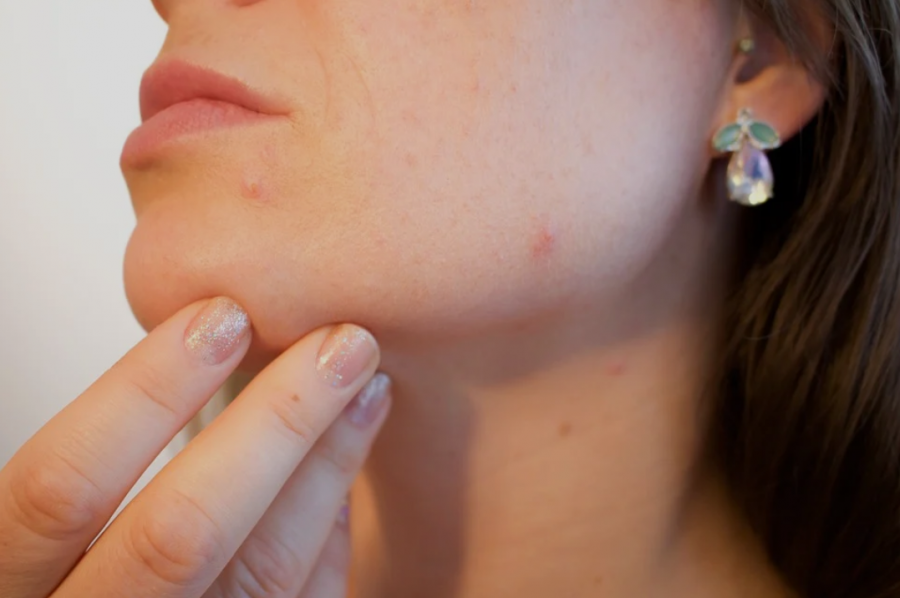Having your skin break out is uncomfortable and embarrassing. Many people think the solution is to wash more and apply topical acne treatments. While these may help, acne breakouts occur for a multitude of reasons. Figuring out what your skin is trying to tell you when you break out can help get rid of your acne for good.

You May Not Be Getting Enough Water
Your skin is approximately 64 percent water. Without this essential component, your overall skin health will suffer. Water is necessary to help flush out toxins, dirt, and bacteria from the skin, preventing them from building up and causing acne. This is especially true if your breakout is on your forehead as this is where people often sweat. Swap out sodas and coffee for water and aim to drink half of your body weight in ounces each day.
Your Endocrine System May Be Suffering
Acne focused around the cheeks and jawline often indicate problems with hormones in your body. This is why so many teenagers suffer from severe cystic acne during puberty; their ever-changing hormones are unbalanced. If you’re an adult suffering from cystic acne, then your best option is to coordinate with a dermatologist and potentially an endocrinologist who can help you get to the root of the problem. If your hormonal acne is happening specifically around certain periods of a menstrual cycle, then medicated creams are typically your best option without resorting to birth control and other extreme hormone-management measures.
You May Need to Visit a Dentist
Poor dental hygiene affects more than your teeth and breath; it can also affect the skin. If you are breaking out around your mouth, chin or lower cheeks it could be related to poor dental health. Gingivitis and cavities can cause bacteria to spread outside of the mouth when you touch your face or lick your lips. Visit a dentist and keep up with your dental hygiene; your entire body will thank you.
Sleep Must be More of a Priority
Your acne breakouts may also be telling you that you aren’t getting enough rest at night. Sleep is essential for keeping hormones balanced and for keeping your skin clear. When you don’t get enough sleep, a stress hormone known as cortisol is released. This may keep your body running, but it also causes inflammation in the skin that can lead to acne. Aim for seven to nine hours of sleep each night.
Your skin is one of the best indicators of your overall health and habits. Reducing your acne with a full-body approach can help you look and feel your best. A dermatologist may be able to help you pinpoint different issues that are causing your acne and help you get the clear skin you want.
